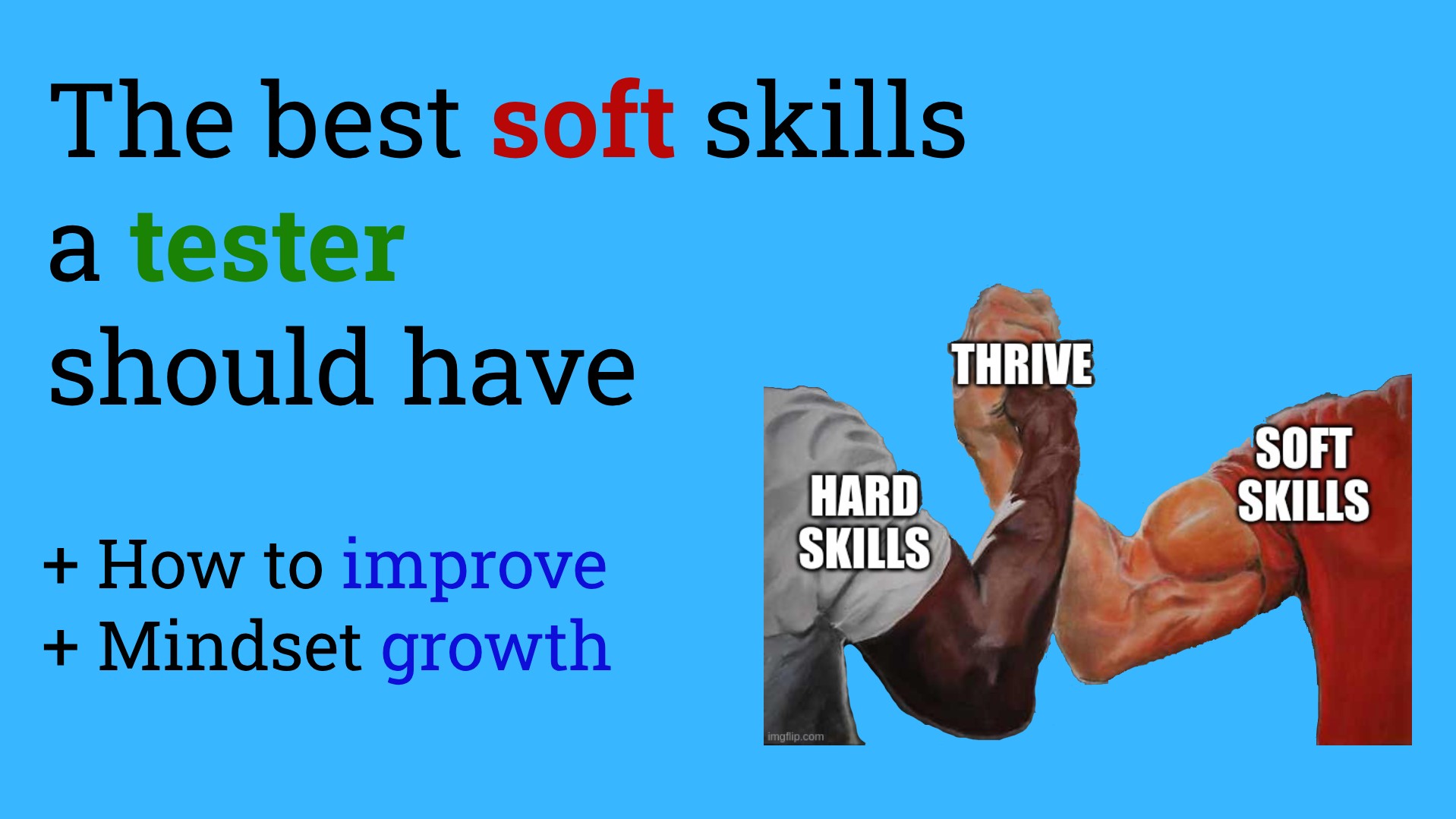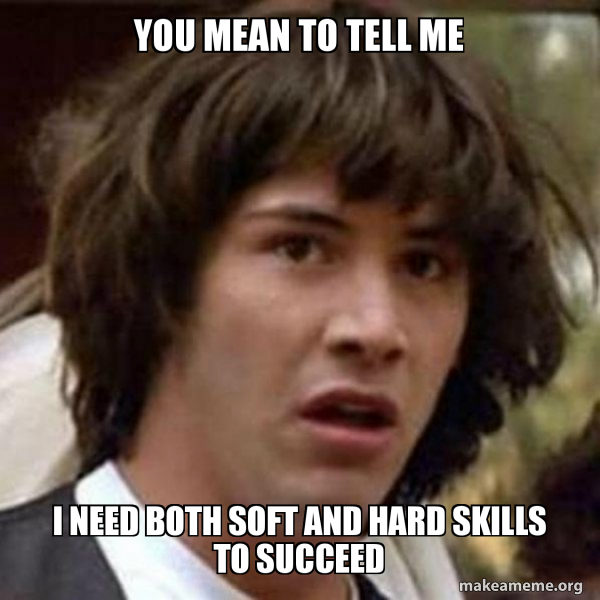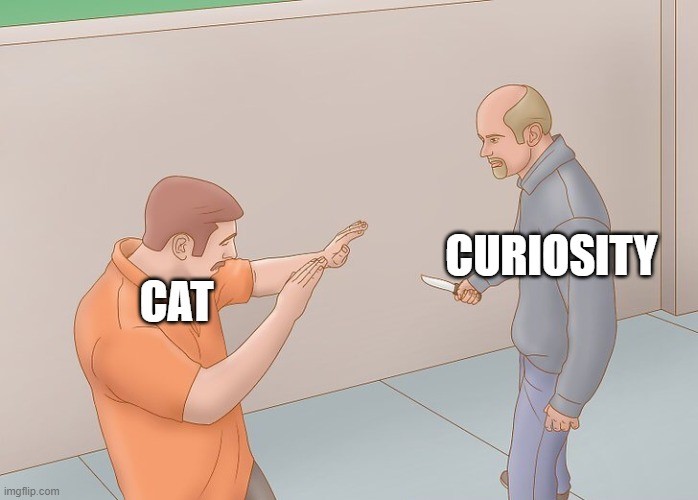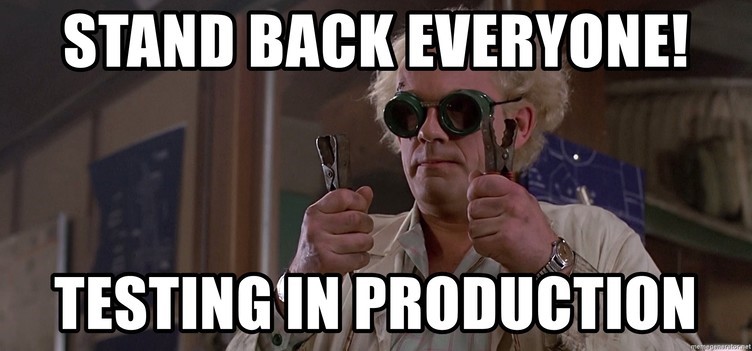
The best soft skills and mindset a tester should have
📅 04 Jun 2023 | ⌛ 6 min read
Are you interested in ...
- Learning about the most important soft skills a tester should have
- Understanding how to develop these skills to improve your performance
- Cultivating the right mindset to be productive no matter the situation
Then, you've come to the right place. I'll talk about ...
- The ideal soft skills a tester should master
- Ways of sharpening these skills
- The two most important sentences a tester mindset should focus on
In this article, we'll go over the most important skills and the ideal mindset for a tester, no matter if they're doing manual, automation, or both.
If you prefer a video version with way more memes, check it out below. Don't forget to subscribe to my YouTube channel as well for more great content.
Why are soft skills important?🏆

First, let's talk a bit about the importance of soft skills in the IT industry as a whole.
We are all humans, after all, at least until ChatGPT becomes so good at impersonating us. As such, even if we are in highly technical fields, we still rely on human-to-human communication, negotiation, and partnerships.
As a tester, having technical skills and knowing lots of theory about testing overall are both very important, but if you want to actually progress in this domain, then you should not neglect soft skills and maintain a productive mindset.
Soft skills ✨
The following areas are very important for a good QA person and, while you may not possess the skills right now, or are a bit rusty, you can always improve them with a bit of practice. As such, I'll also share a few ideas about how to sharpen them.
Curiosity 🔎

A tester will interact with all the features offered by an application, usually basing their behavior and validation on the requirements. However, some of the best things happen when you do not do things as expected by the software.
Being curious and seeing what happens instead of just going on “autopilot” can lead to interesting results. Try using keyboard shortcuts, try tapping buttons multiple times, etc.
Improve your curiosity by asking more questions, learning new things (like how you’re doing with this article), and seeing others in action when they do their own exploratory testing.
Attention to detail 🔬

Needless to say, a tester who is verifying a piece of software needs to pay attention to everything that is happening in order to figure out if things are working as intended or if there is a defect taking place.
It can get easy after the first few months on a project to enter “autopilot” and not pay attention to small things while doing your tests. However it is essential to periodically take a closer look at everything taking place so that you avoid letting defects slip.
Improve your attention to detail by once again learning new things and asking more questions about the behavior of the software, even if the answers may be plain and simple. During the lifecycle of a application, things may change in subtle ways and could lead to defects.
Communication 🔁
Testers don’t work in isolation so knowing how to communicate productively with others is essential. Never forget that communication is a two-way street: You first need to understand others and their points of view and then carefully express your own thoughts and feelings about the task at hand.
You can improve this by engaging in active listening, creating drafts of your thoughts before communicating with others, and taking in feedback from colleagues about your interactions together. This final one is very important, since we may get caught up in our thoughts, think that a conversation went well, but then find that others didn't exactly understand what we talked about but weren't confident in speaking up.
Mindset 🧠
In terms of mindset, I want to highlight two important sentences:
"We’re all in this together, it’s not testers vs everyone" 😈

Some testers take great joy in being the “evil” person on a team. The gatekeeper of quality who can stop releases and updates with their word. While this may seem fun to them, it can get pretty tedious for the rest of the people on the team.
The role of a tester is to improve the quality by finding defects, first and foremost, and by coaching the rest of the team to deliver better results. This final part is essential for the goal of continuous improvement.
If all you do is find defects and not discuss with colleagues about how those defects could have been avoided by having conversations before the implementation, then you're fighting a losing battle. Try to have short sessions with business analysts or developers before starting implementation, in which you show them some potential problems that may happen.
“Why didn’t testing catch this” 💢

This will be the question on everyone’s minds when a defect happens in production or is reported by a customer. When this situation happens, and trust me it will happen a lot since you cannot test everything, it’s important to remain calm, go back to your test evidence and results, and see what exactly happened that did not result in the defect being raised before release.
In many cases the defect may not have reproduced on your test environment due to technical reasons (resources, version mismatches, etc). Other times, it may be your own fault, so you need to admit the problem and immediately present a plan to avoid this in the future.
It is crucial to not go on the defensive, start throwing accusations at others, or, worse yet, become unresponsive to the questions. Be clear, transparent, and professional, since we aren't in kindergarden anymore (although some work places or colleagues may be worse than that).
Conclusion 🏁
You can know the ISTQB sylabus by heart, have all the automation and programming-related certifications, or know the application under test inside out. However, if no one enjoys working with you or, worse yet, you don't maintain your interest in your work, then you're gonna have a bad time.
Having well-developed soft skills and maintaining a positive mindset are essential no matter your job function.
Make sure to practice these things since continuous learning should not be limited just to technical topics or areas.
I hope that with this article, you'll be able to more clearly visualize the areas that you can improve and what unique challenges the testing field offers.